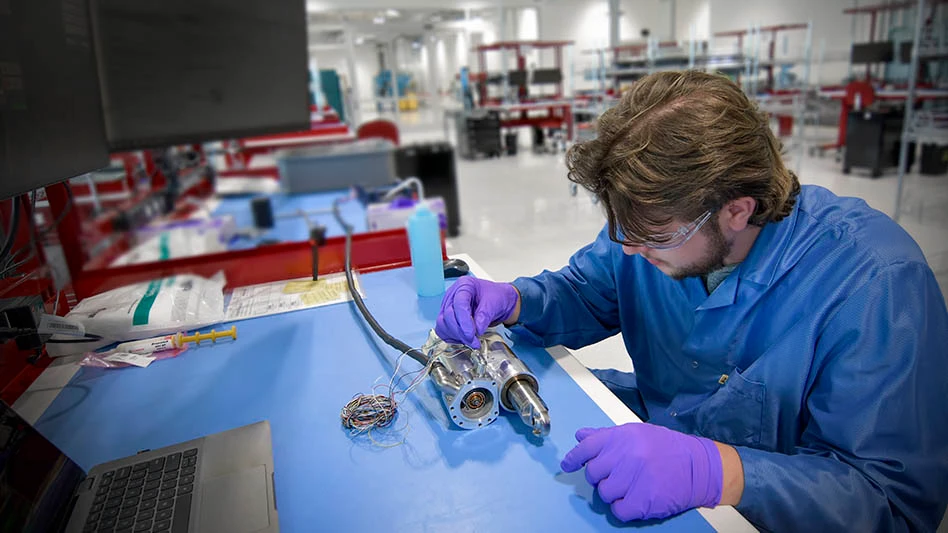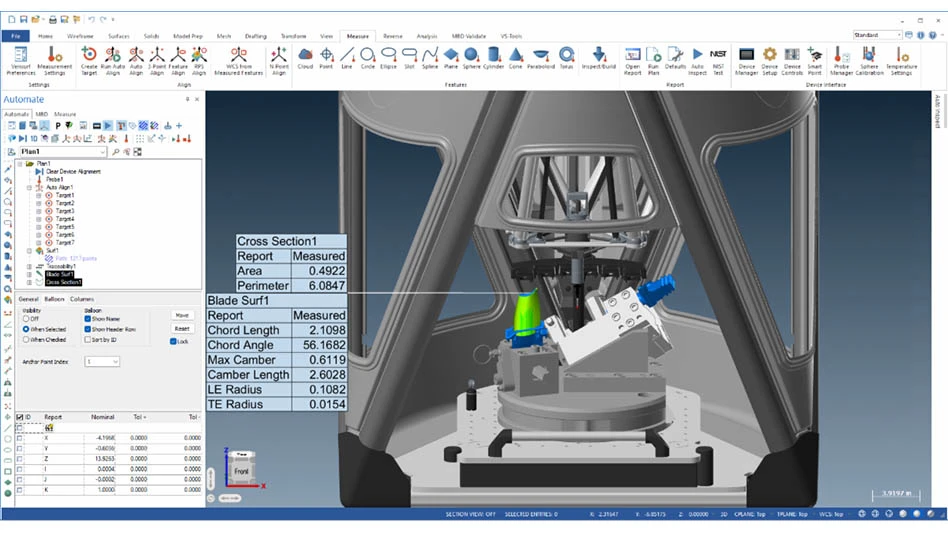

Anyone in the aerospace industry knows the problems caused by the loss of engineering expertise in manufacturing critical processes, from chemical processing, brazing, and coatings, through to heat treating and welding.
In the U.S alone, there are approximately 746,000 unfilled manufacturing jobs, with four million people resigning their jobs in manufacturing in just one year (to October 2022), according to The Manufacturing Institute. The aerospace industry is no exception and shares the same problems associated with loss of talent.
An aging workforce, retirements, and further job exits accelerated by COVID-19, combined with a historical under-investment in succession planning across the industry, have resulted in a deficit of skilled and qualified critical process personnel.
In the past, aerospace suppliers could call on seasoned in-house experts to help mentor the next generation, but that expertise has dwindled, putting pressure on organizations to accelerate training new personnel and ensure they achieve adequate standards of competency.
Developing a training solution
This was the problem faced by Abbey Metal Finishing Co. (Amfin), a Tier 3 supplier to the aerospace manufacturing industry based in the U.K. Amfin Managing Director Gary Griffiths says that four years ago, his business was faced with a general draining of skills and knowledge.
“In the beginning, we had to accelerate our training because of an impending skills gap within our company,” Griffiths says. “It helped us with succession planning and building capacity and capability. The original concept was for the learning of our own people – training for our operators so they could move into different areas of process.”
It became apparent there was a wider need across the supply chain, with Rolls-Royce showing interest. Shortly after developing their training product, Amfin was approached by, and subsequently became an approved training provider for, the PRI Qualification program, part of the Performance Review Institute (PRI) which administers the Nadcap program.
Wider relevance for the supply chain
“After we developed these ideas, COVID happened and we lost more people, so it was fortuitous that we began this approach when we did. Since then, we’ve trained other critical processors’ in-house teams, as well as our customers’ teams,” Griffiths says.
Companies higher up in the supply chain had also lost experienced staff and were struggling to recruit. In addition, new ventures in their early stages didn’t have the necessary experience.
Griffiths explains that for customer companies, their engineering departments need more knowledge on critical processes to help with product development. “An engineer will design and spec something, but there’s a gap between what’s theoretically possible and what’s practical,” he says. “So, we’re also trying to educate engineers to understand what the specifications can really achieve. For example, there’s also a lot of masking involved in what we do, so we say if you do that, you’ll achieve this, but we suggest if you do it this way, you’ll get a better, more consistent result that’ll achieve what you’re actually seeking.”
Industry-managed training, qualification
Amfin became an approved training provider for the PRI Qualification program, in addition to Abaris Training and PRI Training. The PRI Qualification program was established in 2007 and offers qualifications for critical processes personnel. It fundamentally differs from other suppliers of learning and development as it’s created by and for the aerospace industry and includes some of the largest original equipment manufacturers (OEMs), such as BAE Systems, Boeing, Bombardier, GE Aerospace, Honeywell, Lockheed Martin, Raytheon, and Rolls-Royce.
Hannah Godfrey, vice president of professional development at PRI, says, “Using the combined technical expertise of the participating organizations, the PRI Qualification program has developed free critical process bodies of knowledge (BoKs) that document and capture the knowledge and skills required by personnel operating in specific aerospace manufacturing areas. We validate personnel competency through theoretical and practical assessments, and approve training providers such as Amfin, Abaris, and PRI Training, to deliver technical courses aligned with the BoKs.”
On average, each year more than 900 people undertake one of the critical process assessments managed by the PRI Qualification program, with more than 8,500 exams taken since 2014. Undertaking the assessment requires focus and discipline, because while an average of 84% pass exams, 16% fail.
Benefits to the industry
“In aerospace, you must have qualified people working on the product because there’s no highway pull-off at 30,000ft. The only way to do this is through training, qualification, and re-qualification,” Griffiths says. “As a business, we’ve combined our practical experience with the requirements of the customer base and the industry-agreed PRI Qualification BoKs.”
Griffiths continues, “There’s a range of benefits for the aerospace industry, as well as companies and individual personnel, including an improvement in skills, knowledge, and understanding; reductions in supply chain email traffic and meetings; and enhanced product-to-market lead times.”
Martin Day, principal engineer of product design – metallurgy at Honeywell Aerospace, one of the PRI Qualification participating companies, adds, “The program offers a means of succession planning in the aerospace workforce. The knowledge that’s captured through these BoKs is comprehensive and will benefit the industry greatly as there’s nothing similar in our field of expertise.”

Explore the June 2023 Issue
Check out more from this issue and find your next story to read.
Latest from Aerospace Manufacturing and Design
- Demystifying Controlled Unclassified Information (CUI)
- Simplify your shop floor operations while ensuring quality parts
- Happy Independence Day - July 4th
- Bombardier receives firm order for 50 Challenger, Global jets
- Automatic miter bandsaw
- SAS orders 45 Embraer E2 jets with options for 10 more
- Height measuring instrument
- Shopfloor Connectivity Roundtable with Renishaw & SMW Autoblok





